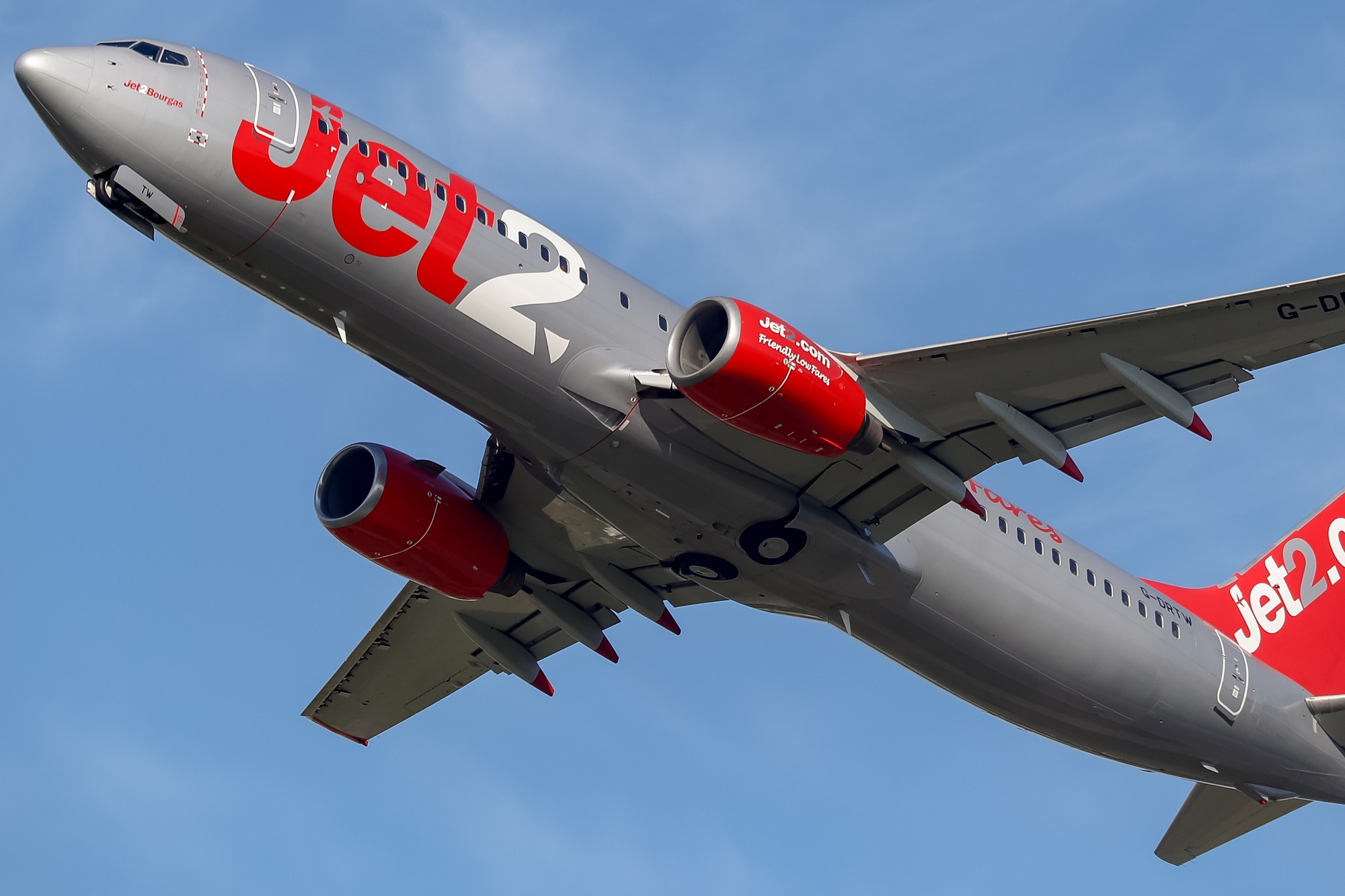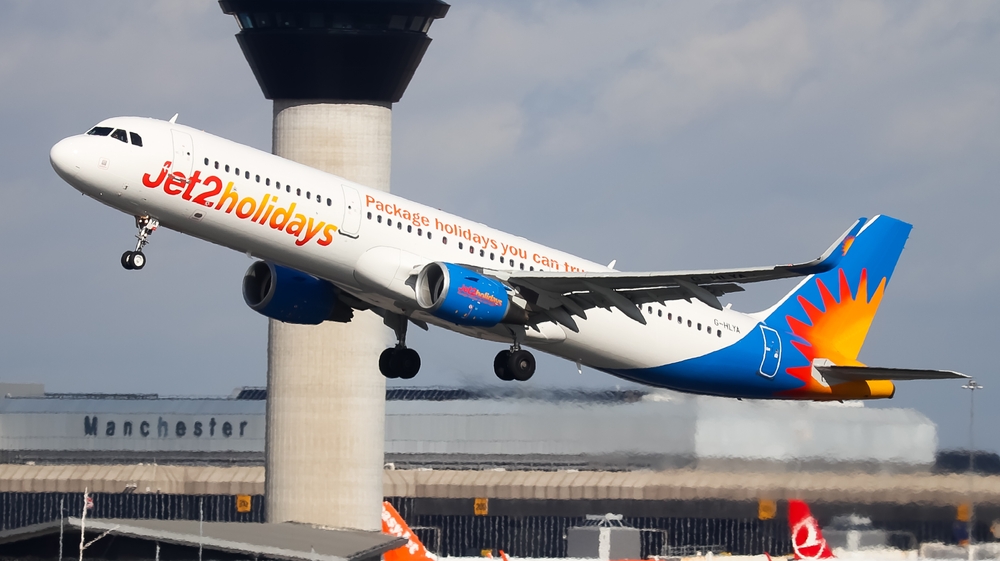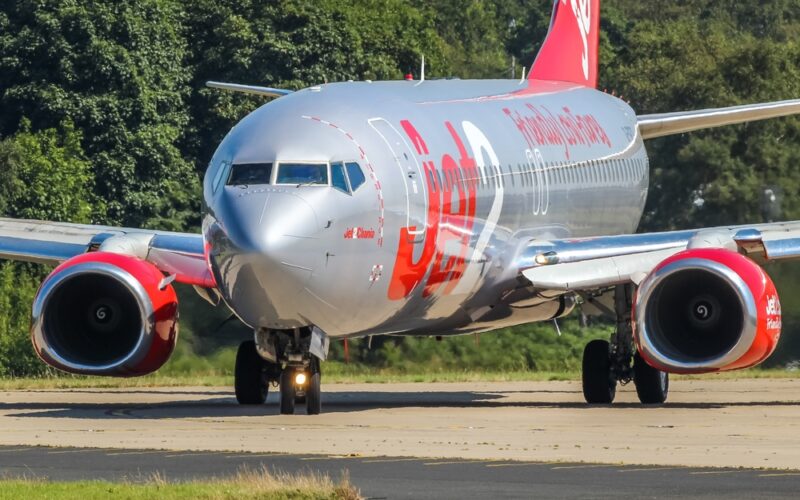UK-based charter airline Jet2 (along with its in-house holiday company Jet2holidays), has published an updated sustainability strategy, detailing how the companies together are planning various strategies to meet a target of reaching net zero carbon emissions by 2050.
Simultaneously, with the launch of a new 2024 to 2035 climate transition plan, the carrier aims to bring its carbon intensity in line with the Science Based Targets initiative (SBTi) guidance by 2035.
A key component of the updated strategy is a new climate transition plan, focused on existing technologies and “tangible actions” that can be taken immediately. This plan will see Jet2 reduce its carbon emissions per revenue-paying passenger kilometer (gCO2/RPK) by 35% in 2035 compared to 2019 (43.55gCO2/RPK in 2035 versus 67gCO2/RPK in 2019).
According to the airline, this emissions reduction pathway will bring Scope 1 and 2 carbon emissions in line with SBTi guidance by 2035 and the company intends to seek SBTi validation of this during 2024. Elsewhere, the “tangible actions” mentioned in the updated report that will enable Jet2.com to achieve this include –
- The purchase of up to 146 new Airbus A320 and A321neo aircraft that are over 20% more fuel efficient than older aircraft;
- Increasing the use of Sustainable Aviation Fuel (SAF) in the total fuel mix to a minimum of 15% by 2035; and
- Further electrification of Jet2.com-owned ground service equipment, leading to a 99% reduction in emissions.
The climate transition plan also identifies the important role that the UK’s Airspace Modernisation Strategy and the EU’s Single European Sky initiative both have in reducing emissions, with more direct flight paths expected to deliver an 8% fuel reduction across Jet2’s network by 2035.

The newly updated strategy details several other actions that Jet2 is taking, such as the introduction of new technology to provide real-time operational data and analysis that can drive fuel savings, weight-reduction initiatives, expanding Jet2holidays’ certified sustainable hotels collection, and reducing the energy use from Jet2 owned buildings to net-zero.
Furthermore, the companies have committed to disclosing all Scope 3 emissions associated with their entire supply chain.
“I am proud of what we have achieved since launching our first sustainability strategy in 2021,” said Steve Heapy, CEO of Jet2 and Jet2holidays. “We have invested in new and more fuel-efficient aircraft, as well as in SAF production here in the UK. We have launched a Certified Sustainable Hotels collection, removed millions of single-use plastics from onboard our aircraft, and met our carbon intensity reduction targets to date.”
“As a result of all this hard work, we have been recognized amongst the top 10 airlines globally for sustainability, according to the CAPA 2023 sustainability benchmark report,” he added.
“Today we are publishing an updated strategy that is bolder in ambition and outlines an emissions reduction pathway which will bring Jet2’s 2035 carbon intensity in line with the Science Based Targets initiative (SBTi) guidance. Critically, this emissions pathway is realistic and achievable because it is based on technologies and actions that we know are available and can be taken currently, rather than what may or may not be available in the future. In addition, we will also be closely monitoring to see where we can invest in and embrace new technologies,” Heapy concluded.
Driving towards sustainability since 2021
From 2021 to 2023, Jet2 offset every ton of its carbon emissions not already covered by its contribution to existing schemes (CORSIA and UK and EU Emissions Trading Schemes). The updated strategy will see the company commute these funds to invest in direct mitigations, such as SAF and the installation of split-scimitar winglets onto aircraft, rather than continuing to invest in further renewable energy credits.
The updated strategy focuses on technologies and pragmatic actions that are available and can be taken currently. Jet2 also commits to understanding and exploring emerging technologies such as Direct Air Carbon Capture (DACC) and Bio Energy Carbon Capture (BECC), to make future investments in such technologies where appropriate.

Since 2021, the company has made an equity investment into a new Sustainable Aviation Fuel (SAF) production plant to be constructed in the North West of England, plus has incorporated the use of blended SAF in 2024 at Bristol (BRS), London-Stansted (STN), and Malaga (AGP) airports. The carrier has also received eight new aircraft from an order of up to 146 new Airbus A320 and A321neo aircraft.
Jet2.com reduced its calendar year intensity emissions in 2023 to 65.7g of CO2 per revenue-paying passenger kilometer and was recognized amongst the top 10 airlines globally for sustainability, according to the CAPA 2023 sustainability benchmark report.
Jet2 currently operates a fleet of 116 aircraft comprising three Airbus A321s, eight A321neos, seven Boeing 737-300s, 92 737-800s, and six 757-200s.

